News & Articles
Browse all content by date.
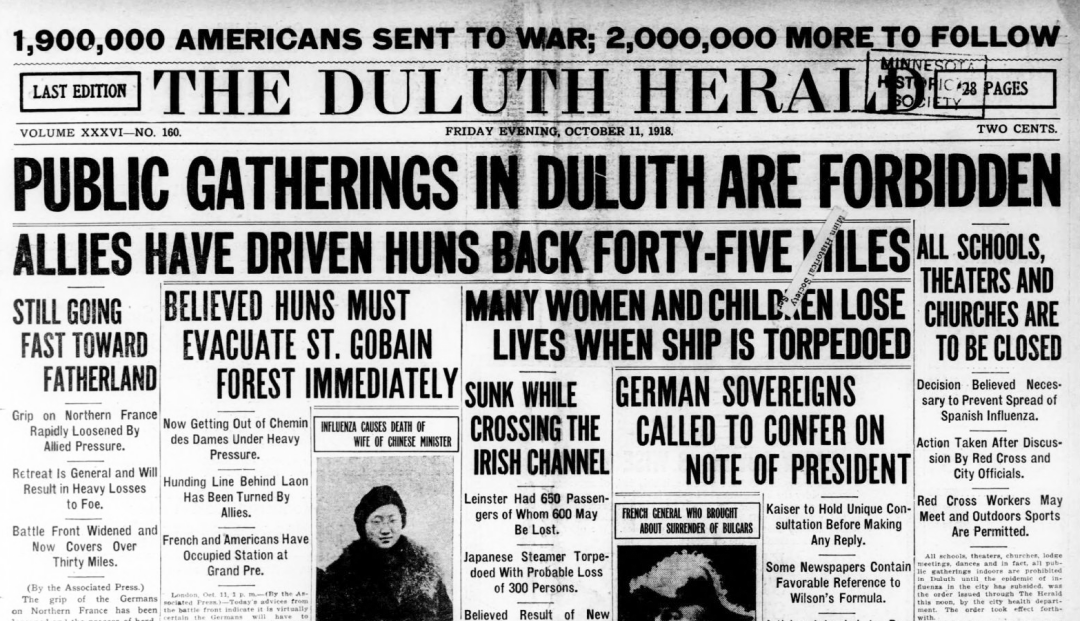
How often have you heard someone refer to the COVID 19 pandemic as “unprecedented”?
While it might be unprecedented in our time, it certainly is not unprecedented in the scope of human history. In fact, the “Spanish” flu pandemic that went around the world in 1918 sounds very much like the current crisis, with lockdowns and the closing of places where the public gathered, including churches and schools.
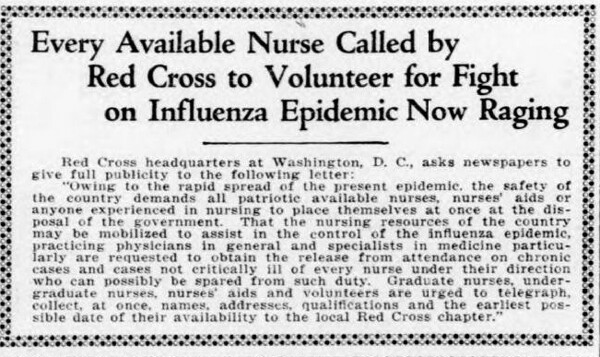
“Two facts about the pandemic influenza stand out:” began an article in the October 10, 1918, Duluth Herald, “First, that there is danger that the scope and seriousness of it will be exaggerated into a needless panic; second, that it isn’t a thing that can be taken lightly.”
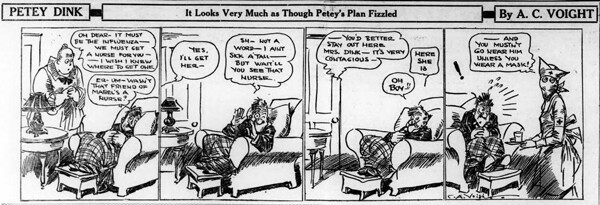
Sound familiar?
The article continues: “…the other day New York had about six thousand cases – it has more now, of course – which looks bad indeed until one reflects that there are six million people in New York and that means that only about one-tenth of one per cent of the people were affected….Nevertheless, it is a serious ailment, to be guarded against rigidly and to be treated most carefully when it hits you.”
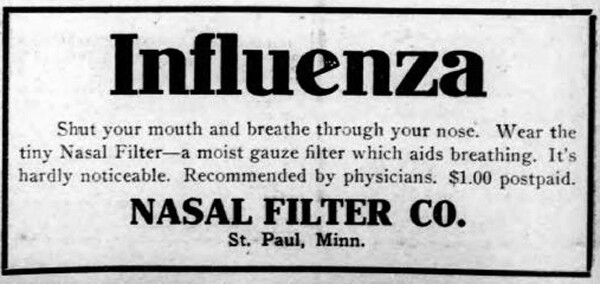
The article also mentions that the flu is definitely passed by “the invisible spray of germs” from those already afflicted, and mentions “in Chicago they can arrest you if you cough or sneeze without confining the spray with your handkerchief. These facts convey useful hints about how to escape it, and how to save others if you get it.”
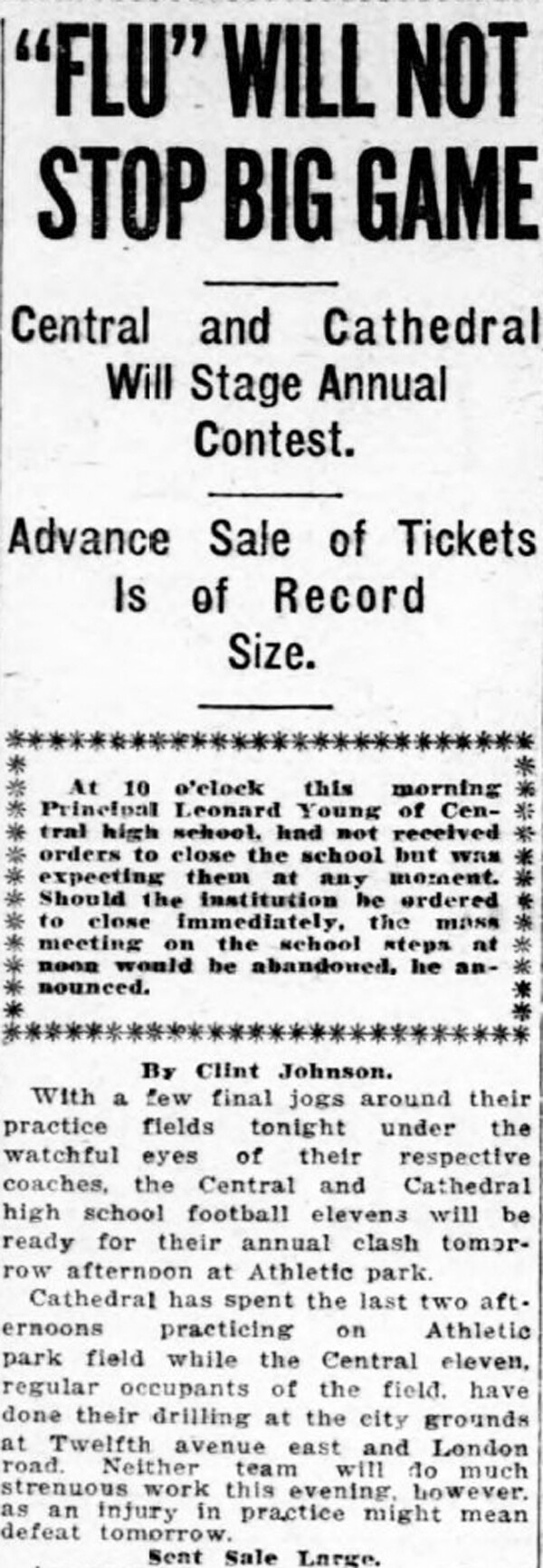
The Duluth Herald’s unidentified editorial writer of the time asked readers in an October 12 editorial, the day after an order to close public gathering places, to “CARRY ON!” The editorial writer suggested – “The adoption of a firm resolution on the part of every citizen to keep cool, to keep unafraid, to keep cheerful, and to “carry on” in the ordinary ways of life so far as it is possible…”
“’This, too, will pass,” the editorial concluded, “and presently, the epidemic run its course, Duluth will be back in its old accustomed course with not one per cent of the trouble that will afflict communities that are less forehanded, less calm and more hysterical.”

Four days later, in an October 16 editorial, the writer again urges against action taken in fright or panic, despite the growing number of influenza cases in the area.
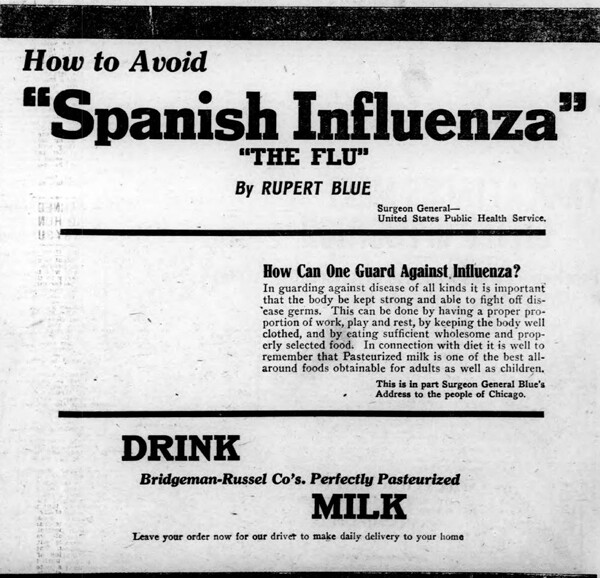
After saying the odds were one in three that you would get the disease, the writer of this 100-year-old piece describes things that sound very familiar to the current situation, “If you are careful you can greatly extend the odds in your favor. Being careful means avoiding contagion; means keeping out of crowds and crowded places; means keeping as well as you can generally; means keeping clean; means washing your hands invariably before eating, for even if you keep your mouth and nose free your hands may pick up germs; means avoiding the infected five-foot area around the person who coughs or sneezes; means keeping cool as well as careful. If it means that all of us wear face masks until the epidemic is over it might look like an excess of caution, but it would undoubtedly prevent many cases and might be a very sensible thing to do.”
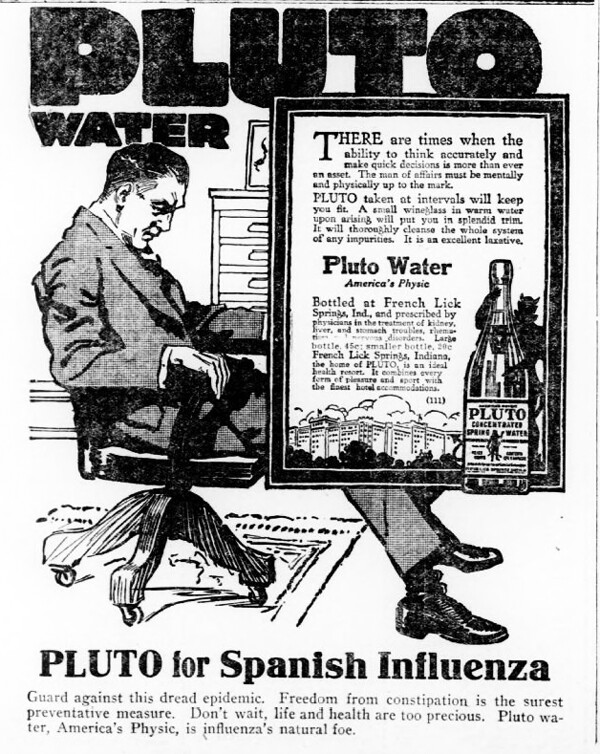
There were also charlatans out there who took advantage of the situation by suggesting that this or that might help you weather the pandemic. Ads suggesting pasteurized milk might help appeared. A letter writer touted the efficacy of washing women’s long hair in kerosene to avoid catching the flu. Laxatives were touted as a way to keep the flu at bay.
The accompanying images from the Duluth Herald help tell the story. The images are courtesy of the Minnesota Historical Society newspaper archives.
| Tweet |


